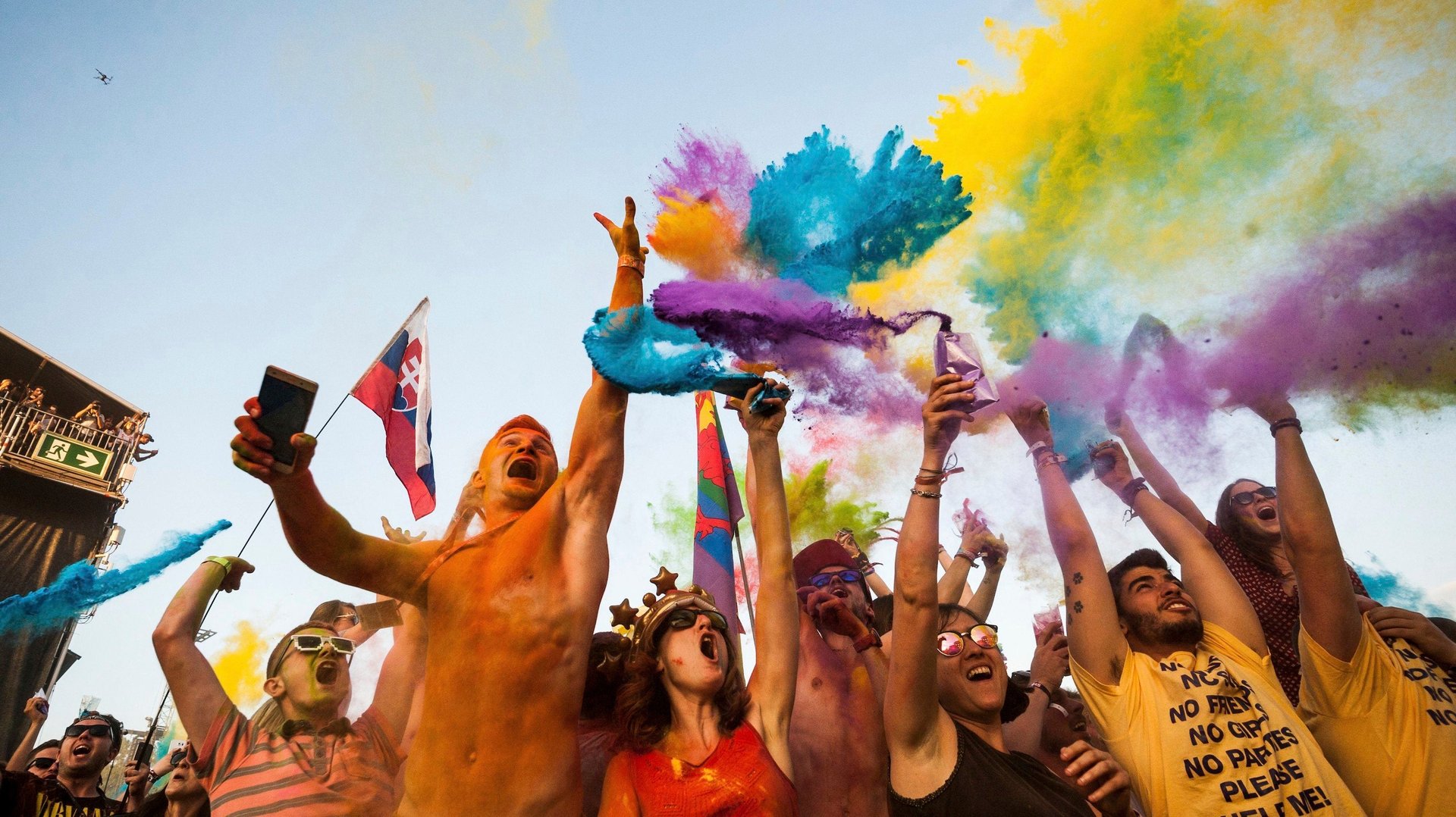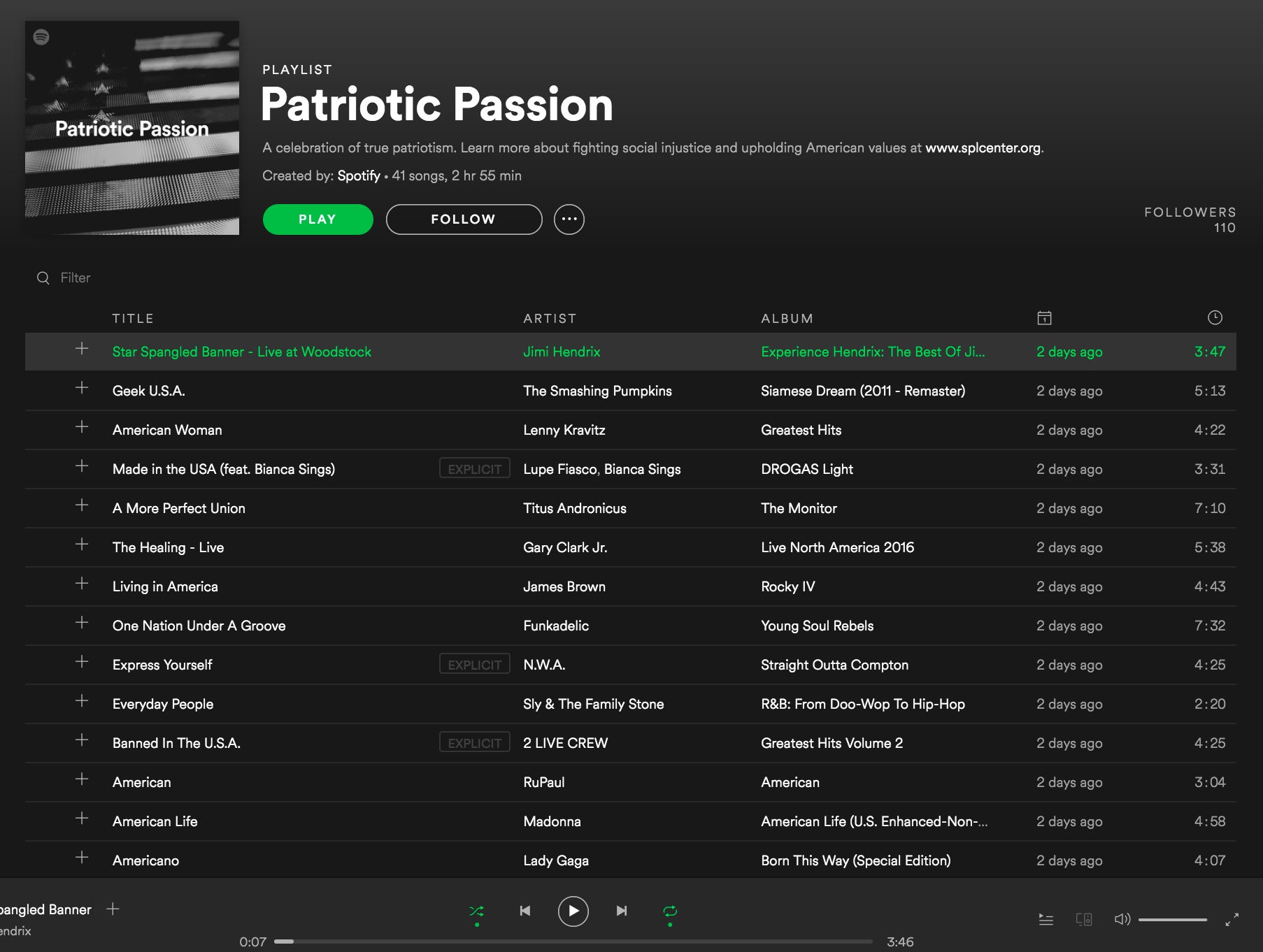Spotify is now deciding what music is politically acceptable for listening
Music is political. Musicians are political. This we knew. Turns out that music-streaming services, the digital platforms that are supposed to merely host all of our songs and albums, are as well.


Music is political. Musicians are political. This we knew. Turns out that music-streaming services, the digital platforms that are supposed to merely host all of our songs and albums, are as well.
Following a week of tumult in American politics that began with a violent race-related protest in Charlottesville, Virginia, Spotify—the leading on-demand music subscription company, far ahead of Apple Music, Amazon, and other rivals with more than 140 million users around the world—has removed some artists identified by activist groups as white supremacist “hate bands” from its service in the US.
The Southern Poverty Law Center published a list of 37 “white power” artists back in 2014; a music publication resurfaced the list this week, and the bulk of the acts—including names such as Blood Red Eagle and Tattooed Mother Fuckers—were wiped from Spotify within the last few days.
“Illegal content or material that favors hatred or incites violence against race, religion, sexuality, or the like is not tolerated by us,” a Spotify spokesperson told Billboard.
It even followed up on its erasure of the “hate bands” by making a playlist called “Patriotic Passion,” which a spokesperson described—in a separate statement— as “a soundtrack to an America worth fighting for.”

All this comes only a few weeks after Spotify launched an audio and visual project called “I’m With the Banned,” supporting and promoting artists from countries affected by the US’s new partial travel ban. Donald Trump’s name is not mentioned once in Spotify’s press release—but it doesn’t need to be, and Spotify’s political views are made even clearer by the company’s actions this week.
While wary of making any overt moves at first, Silicon Valley is now, bit by bit, positioning itself decidedly against the Trump administration, with CEOs like Tim Cook openly coming out against Trump’s positions and companies like CloudFlare deleting neo-Nazi news sites. Spotify is no exception.
The difference is that while companies like Uber and Intel can protest Trump’s politics from a business perspective, Spotify—which claims to champion free speech and expression, and has from the very start insisted on making all music accessible to all—is in a much trickier situation to take a stance.
Now that Spotify has laid out criteria for what music is offensive enough to be removed, will it apply the same standards to all songs in the future? Who will judge? Take, for example, Spotify’s “Patriotic Passion” playlist, which features controversial groups like N.W.A and 2 Live Crew that could very well be argued to “favor hatred or incite violence against race, religion, sexuality, or the like.” Or should the newly revived Guns N’ Roses be removed for one 1989 song that talks about “niggers, immigrants, and faggots?”
By publicly deciding to wade in and remove content, as Facebook and other platforms have recently been pressured to do, Spotify is pledging to draw some sort of line on acceptable music—though where that line is exactly remains unclear. The company replied to Quartz’s request for comment with the same statement it gave Billboard.